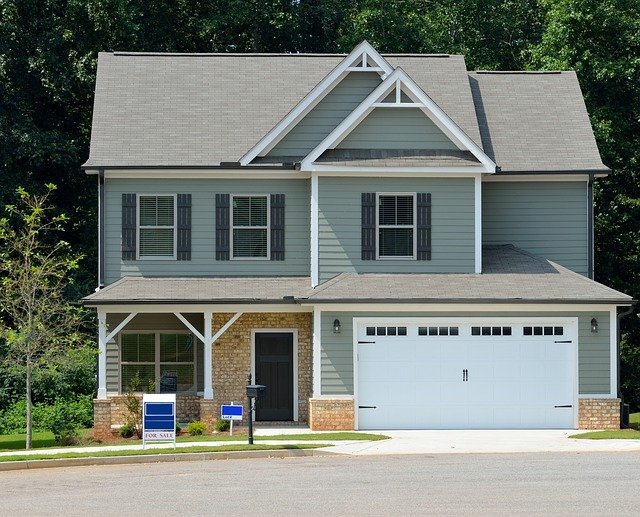Mortgages are an important part of buying or owning a home, but a lot of people aren’t sure of what to do and spend too much when they’re getting a mortgage. This article contains tips telling you get the best mortgage possible. Keep reading and you’ll learn all you can.
Try not to borrow the most you can borrow. The mortgage lender is going to let you know how much you can qualify to get, but you shouldn’t think that’s a number based on how you’re living. Think of how you spend money and what payment amount feel comfortable.
Get pre-approved for a mortgage to get an idea of how much your payments will cost you. Comparison shop to figure out a price range. Once you have this information, it will be fairly simple to calculate your monthly payments.
Even if you are underwater with your mortgage, the new HARP regulations can help you get a new loan. This program makes it easier to refinance your home. See if it can benefit you by lowering your mortgage payments.
Don’t go charging up a storm while you are waiting for approval. Lenders often recheck credit a few days before a mortgage is finalized, and could change their mind if too much activity is noticed. Wait until you loan closes for major purchases.
You are going to have to put down an initial payment. Some mortgage providers use to approve applications without asking for a down payment, but most firms require it nowadays. Ask what the down payment has to be before you send in your application.
You will more than likely have to cover a down payment when it comes to your mortgage. In years gone by, buyers could obtain financing; however, most do require a down payment now. Ask how much of a down payment is required before you submit your application.
Line up your budget appropriately, so that 30 percent or less of your income goes to the mortgage. Paying more than this can cause financial problems for you. Manageable payments leave your budget unscathed.
Know what terms before trying to apply and be sure they are ones you can live within. No matter how good the home you chose is, if it makes you unable to keep up with your bills, you are bound to get into financial trouble.
If you decide on a mortgage, be sure you’ve got good credit. Lenders will scrutinize your past credit to determine how much of risk you are to them. If your credit is not good, work on repairing it before applying for a loan.
Do not slip into depression if you had your application denied.Different lenders have different requirements for giving loan approvals. This means that it can make sense to apply with a few different lenders.
Make sure to see if a property has decreased in value before seeking a new loan. Your home may seem exactly as it was when first purchased, but the actual value may have changed and could have an impact on the chances of approval.
Educate yourself on the home’s history of any prospective property. You must be aware of the cost of taxes prior to signing your property taxes.
If you’re purchasing your first home, there are government programs available to help. These programs can reduce closing costs, offer lower interest rates and even get your loan approved.
Search around for the most advantageous interest terms possible. The bank is seeking the best way to get you to pay a very high interest rate that is high. Don’t let yourself be a victim to this type of thing. Make sure you do some comparison shopping around so you’re able to have a lot of options to choose from.
Before you talk to a potential lender, make sure you have all your paperwork in order. A lender will want to see bank statements, proof of assets, and proof of income. Being prepared well in advance will speed up the application process.
Make extra payments if you can with a 30 year term mortgage.This will pay down principal.
Get full disclosure, in writing, before signing for a refinanced mortgage. This should include all closing costs, and any fees you will be held responsible for. If the company isn’t honest or forthcoming, they aren’t the one for you.
Try lowering your debt load prior to purchasing a home. A home mortgage will take a chunk of your money, no matter what comes your way.Having minimal debt will make it easier to get a home mortgage loan.
If you can’t get a loan through a credit union or bank, consider a mortgage broker. A lot of times, a broker can do a better job finding a mortgage suitable for your situation. They check out multiple lenders on your behalf and help you choose the best option.
Balloon mortgages are the easier ones to get approved for. This is a short-term loan option, and the balance owed on the mortgage needs to be refinanced when the term of the loan expires. This is a risky loan to get since interest rates can change or your financial health.
Honesty is the best policy when applying for a mortgage loan. Being less than honest can cause you to be denied. A lender will not put their trust in you if you can’t be bothered to tell the truth.

Research prospective lenders before you sign the papers. Do not ever take what they tell you as fact. Look them up on the Internet.Check out lenders at the BBB. You have plenty of information before you can be prepared to secure favorable loan terms.
If you don’t have good credit, you should be ready to put a large down payment down on your loan. Three to five percent is common, but twenty will get you the very best deal.
Adjustable rate mortgages or ARMs don’t expire when their term is up. The rate is adjusted accordingly using the applicable rate at the time. This creates the rate of an unreasonably high interest that you pay.
If you can’t pay the down payment, ask the home seller to consider taking a second. Many sellers just want to make a quick sale and will help you out. You will need to make a two payments from then on, but it could assist you in getting your mortgage.
After you have your mortgage, you should work on paying a little more than you should monthly. This will help you pay off your principal quickly. Paying as little as an additional hundred dollars more per month could reduce how long you need to pay off the term of a mortgage by ten years.
Getting a secured interest rate is important, but there are other things to think about. Different lenders assess different types of fees. For example, the closing costs and points along with the loan type should be considered. You should get estimates from a few different banks before making a decision.
Closing Costs
Before applying for a mortgage it is best that you come up with a budget. If your lender approves you for much more than you’re able to actually afford, you won’t have much wiggle room. However, be careful never to overextend your budget. If you do this there may be financial issues later.
Open a savings account and leave a lot of funds in it. You need to show cash reserves available for your closing costs, closing costs and the down payment. If you are able to afford a substantial down payment, you will have a better mortgage.
Do not lie. When you finance for your mortgage, never lie. Never misstate assets or income. This may result in you obtaining more debt that you are able to pay off. It might seem like a good idea, but it isn’t.
Many sellers just want out and will help you out.You will have to make two separate payments each month, but this will enable you to get a mortgage.
There is no need to reword your paperwork if you are denied by one lender – just take it to the next. Be sure to keep your situation stable. Some lenders have different requirements than others and it likely has nothing to do with you. A different lender may be more than willing to approve you.
Speak with a broker and ask questions about things you do not understand. It is essential that you always understand what is happening. Be sure the broker has all current contact you. Check in with your emails to see if the broker needs more information.
Before you set out to apply for a home mortgage, try saving as much money as possible. Required down payments can vary anywhere from 3.5% to 20%. Higher is best. If you put down less than 20%, you’ll have to get private mortgage insurance.
If your lender decides to approve you for more than you can realistically afford, it’ll give you some leeway. Doing so could cause severe financial troubles later in life.
For some people, getting a variable rate is the way to go. In fact, brokers usually make more of a commission on a fixed rate mortgage these days. That means they are likely to use rate hikes to scare you. Get a mortgage that is on your terms.
The best way to get a better rate is to ask for one. Your mortgage will never be paid off more quickly if you’re scared to ask for a better rate.
Ask people you know to recommend a mortgage broker. They’ll know who the best option is. You still need to compare a few different brokers after getting suggestions, of course.
Save as much money as possible prior to applying for a mortgage. You usually need to put at least three percent down. You have to pay private mortgage insurance for any down payment less than 20% down.
Avoid putting money in your account that you cannot trace. When a lender sees large deposits, they have to inquire about it in the event that it is money that is being laundered illegally. Large deposits that have no explanation could hurt your loan and get you into trouble.
Your home is likely your home because of the mortgage that you have taken out. With your increased knowledge you will be able to make your mortgage the best possible. In the end, this will benefit you greatly, and your home will be yours for as long as you wish to live there.
Always have all the the terms of your mortgage agreement given to you in writing. From an interest rate quote from a lender to anything a mortgage broker offers you, have them write it down in an email or on paper and give it to you, just in case.






